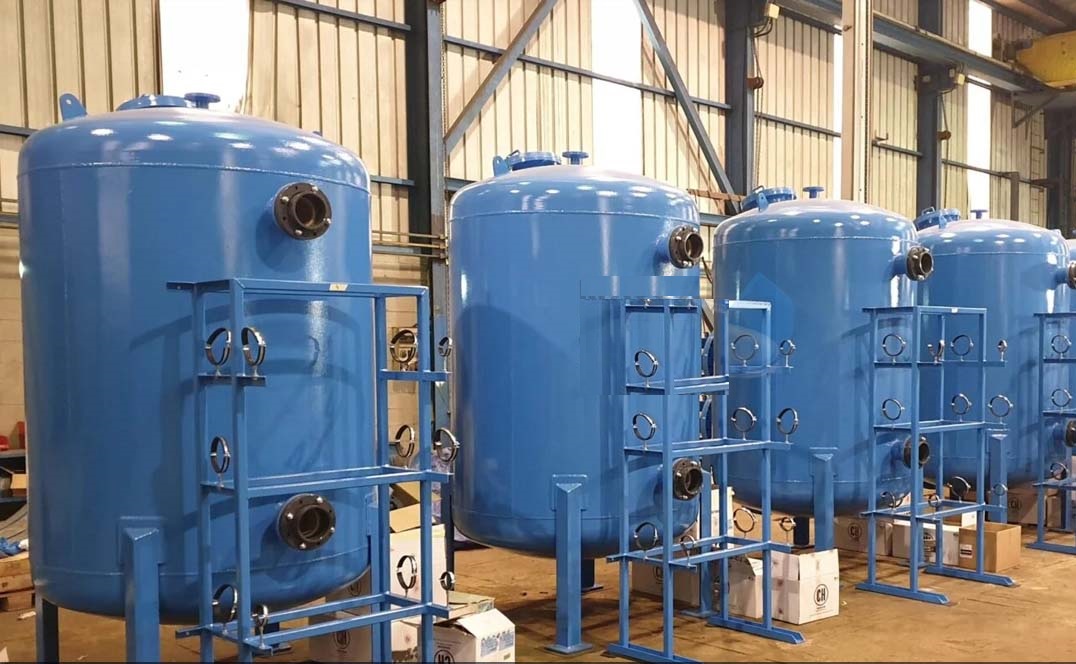
Everything you should know about Media Filters
Media filters are a type of water filtration system. It is used to remove impurities and particles from water. These particles include sand, silt, algae, and other impurities that can be present in the water.
Media filters consist of different filtration media, such as sand, gravel, or plant fibers, and these media are used to absorb and trap suspended particles in the water. Filters are effective in removing both large and small impurities.
Types of Media Filters
There are several types of media filters, including:
- Sand filters: rely on layers of different sand to filter particles. Water flows through these layers, allowing the sand to absorb and trap unwanted particles.
- Gravel filters: Gravels of different sizes are used to form filtration layers. These layers absorb impurities and particles as the water passes through.
- Plant Fiber or Felt Filters: Rely on plant fiber materials to absorb particles and filter water.
Different applications that use media filters
Media Filters are widely used in various applications, including irrigation systems, industrial cooling systems, and equipment contamination protection. Media type and filter design are selected according to the requirements of the specific application, taking into account the target particle size and system efficiency.
Selection of the type of media filters
Determining the appropriate type of media filter for a particular industry requires a precise understanding of that industry’s specific water requirements and the impurities that must be removed. Here are some steps that can help you choose the right type of media filter for your industry:
Analysis of water components:
Analyze water used in industrial processes to determine the impurities and particles present in it. Be sure to know the particle size and possible types of impurities.
Determine purity requirements:
Determine the required purity of water in industrial processes. Some industries may require water that is completely free of impurities, while others may require water of a specific quality.
Determine the amount used:
Determine the amount of water that will pass through the filter per day or hour. This helps determine the size and capacity of the filter required.
Water ecosystem:
Examine the composition of the water ecosystem, such as pH and salinity. Some filters may be more effective in certain environmental conditions.
Installation and maintenance costs:
Compare the costs of installing and maintaining different types of media filters. Look at the virtual life of media and how it integrates with regular maintenance.
Available space:
Calculate the space available to install the filters and determine the optimal size and design to meet industry needs.
Legislation and standards:
Check local and international environmental standards and regulations, as there may be special requirements for the quality of water used in some industries.
Consult water specialists:
Speak with water treatment experts or professional engineers for additional guidance and recommendations on the best type of media filter for your industry’s needs.
Based on these factors, it is possible to effectively select the type of media filters that best suit your industry and achieve effective water treatment performance.
Continuously striving to provide the latest desalination technologies
Modern desalination trends include the development of advanced technologies that aim to improve the efficiency of removing pollutants and reduce costs and environmental impact. Among these technologies are reverse osmosis and media filters, which allow for the effective and sustainable removal of pollutants.
In addition, modern technologies in desalination seek to use the latest methods and techniques and continuously develop them to improve the efficiency of the desalination process and reduce the costs it entails.
These modern technologies are considered an essential foundation for the localization of the desalination industry and the advancement of state institutions, as they contribute to improving the services provided to citizens and achieving the requirements of Vision 2030.
You can learn about the characteristics and advantages of this type of filter so that you can determine your needs with water experts in the Kingdom of Saudi Arabia.
























